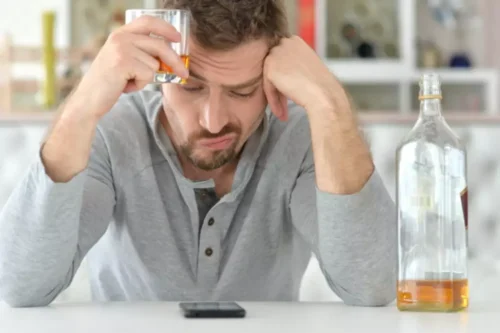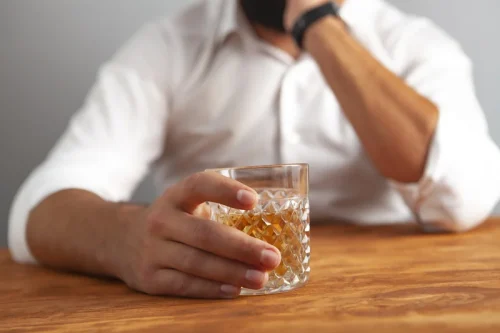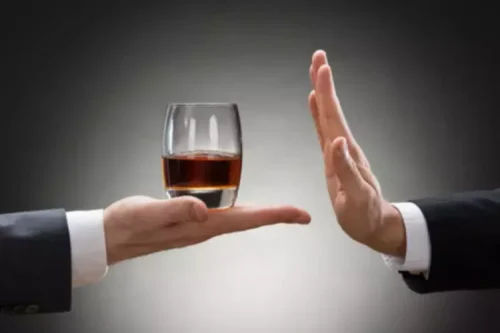
For many of these individuals, drinking itself is a means of limiting exposure to feared situations and thus can be conceptualized as an avoidance strategy that has prevented the development of alternative ways of coping. To borrow terminology from the respective CBT approaches for anxiety and AUDs, the link between anxiety and drinking for comorbid clients may mean that in effect an exposure exercise also becomes a high-risk situation for alcohol relapse. Relapse to avoidance strategies (e.g., reliance on checking behaviors in obsessive-compulsive disorder or avoidance of social gatherings in social anxiety disorder) in the process of exposure is undesirable even for people suffering only from an anxiety disorder.
Panic Attacks & Panic Disorder
When dealing with health disorders that may be caused or worsened by alcohol use, the first and most essential action to take is reducing or eliminating alcohol intake. For example, research suggests panic disorder typically exhibits a relatively strong association with AUDs, whereas obsessive-compulsive disorder has the weakest relationship with alcohol disorders. AUDs may begin with sporadic drinks that escalate in amount and frequency over time.

Risk Factors for Anxiety
Regular exercise, a consistent sleep schedule and reduced caffeine and sugar intake can also help reduce anxiety. Alcohol is a drug like any other, and anything that affects your body like alcohol does has the potential to contribute a great deal to your panic attacks and anxiety more generally. For this reason, those that have panic attacks should strongly consider avoiding alcohol wherever possible. 20% of people diagnosed with an alcohol or substance use disorder also suffer from an anxiety or mood disorder.
Your addiction does not have to define who you are.

Talkiatry is a national psychiatry practice that provides in-network, virtual care. Co-founded by a patient and a triple-board-certified psychiatrist, Talkiatry has over 300 doctors, 60 insurance partners, and first visits available in days. The fact that all these physiological changes can cause symptoms so similar to those of a panic attack can trick your brain into having a real one. A phobia is strong fear or alcohol and panic attacks dread of a thing or event, which is out of proportion to the reality of the situation. Everyone is different and may experience various combinations of the above, which are almost always accompanied by an overwhelming sense of fear and anxiety. However, if there is a chance that you are physically or psychologically addicted to alcohol then you should not attempt to stop drinking without professional support.

- If you experience sudden, intense anxiety and fear, it might be the symptoms of a panic attack.13 Other symptoms may include a racing heartbeat, or feeling faint, dizzy, lightheaded, or sick.
- Waking up after a night of heavy drinking can sometimes come with a fuzzy memory or uncertainty about what exactly happened when you were under the influence.
- Chemical dependency specialist Joseph Janesz, PhD, LICDC, says there are various ways that anxiety and alcohol are linked, so it’s important to understand how alcohol affects not only your body, but also your mind.
- Having a drink might seem like a good way to ease anxiety, but you may be doing more harm than good.
- Your brain and nervous system play key roles in how you perceive and handle fear and anxiety.
- A main feature of panic disorder is that the attacks usually happen without warning and aren’t due to another mental health or physical condition.
It is common for students or an employee to feel anxious about an assignment of presentation, this is normal anxiety. However, actual Anxiety Disorders can be much more dangerous if left untreated and can often be a trigger for someone to self-medicate. Psychotherapy, medications or a combination of both are very effective in treating panic attacks and panic disorder.
Knowing how alcohol affects anxiety may make it less tempting to have a drink to cope. By Katharina Star, PhDKatharina Star, PhD, is an expert https://ecosoberhouse.com/ on anxiety and panic disorder. Dr. Star is a professional counselor, and she is trained in creative art therapies and mindfulness.
- The authors suggest someone with AUD has a higher risk of developing an anxiety disorder and vice versa.
- It is common for students or an employee to feel anxious about an assignment of presentation, this is normal anxiety.
- And they can’t be better accounted for by another mental health condition, like a phobia or PTSD.
- Central to this strain is the assumption that specific diagnostic dyads are the appropriate unit of analysis for studying co-occurring negative affect and alcohol misuse.
- However, it can be easy for one drink to turn into more and lead to a growing dependence on alcohol.
There are noteworthy advantages of this approach relative to sequenced treatment, such as, at least theoretically, reducing the chances of relapse by attending to both disorders. In light of the mutual-maintenance patterns mentioned earlier this may be a quite significant benefit. However, several limitations of the parallel approach also exist beyond inherent difficulties with case coordination (Stewart and Conrod 2008). For example, clients may become overburdened with the time and effort involved with participation in two treatments with potentially two providers in separate locations.
Is Anxiety Associated with Alcohol Tolerance and Dependence?


